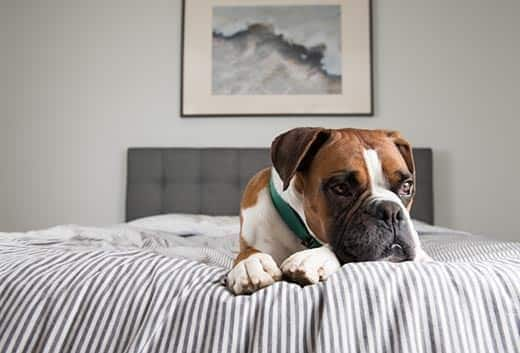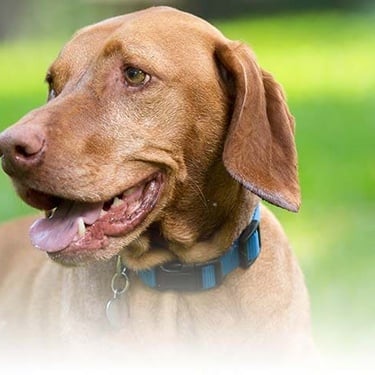
-
Find the right food for your petTake this quiz to see which food may be the best for your furry friend.Find the right food for your petTake this quiz to see which food may be the best for your furry friend.Health CategoryFeatured products
 Adult Sensitive Stomach & Skin Chicken Recipe Dog Food
Adult Sensitive Stomach & Skin Chicken Recipe Dog FoodHill's Science Diet Sensitive Stomach & Skin dry dog food is gentle on stomachs while nourishing skin & promoting a lustrous coat.
Shop Now Adult 7+ Small Bites Chicken Meal, Barley & Rice Recipe Dog Food
Adult 7+ Small Bites Chicken Meal, Barley & Rice Recipe Dog FoodSupports energy level and beautiful coat in mature dogs who prefer smaller kibble
Shop Now Adult Small Bites Chicken & Barley Recipe Dog Food
Adult Small Bites Chicken & Barley Recipe Dog FoodSupports lean muscle for dogs who prefer smaller kibble
Shop NowFeatured products Adult Chicken & Spinach Casserole Cat Food
Adult Chicken & Spinach Casserole Cat FoodWith delicious chunks in a decadent gravy
Shop Now Adult 7+ Tender Tuna Dinner Cat Food
Adult 7+ Tender Tuna Dinner Cat FoodWith delicious chunks in a decadent gravy
Shop Now Sensitive Stomach & Skin Chicken & Beef Dinner
Sensitive Stomach & Skin Chicken & Beef DinnerGourmet daily nutrition, carefully made. Tasty chunks with chicken & beef in a decadent gravy. Supports digestive health, nourishes skin and promotes a lustrous fur.
Shop Now -
DogCat
- Cat Tips & Articles
-
Health Category
- Weight
- Skin & Food Sensitivities
- Urinary
- Digestive
- Kidney
- Dental
- Serious Illness
-
Life Stage
- Kitten Nutrition
- Adult Nutrition
Featured articles Pet Food Storage Tips
Pet Food Storage TipsWhere you store your cat and dog food can make a big difference in the quality and freshness once it is opened. Here are some common questions and recommendations for optimal storage for all of Hill’s dry and canned cat and dog food.
Read MoreHill's Australian Bushfire EffortsRead More Water
WaterWater is the most important nutrient of all and essential for life. Animals can lose almost all their fat and half their protein and still survive, but if they lose 15% of their water, it will mean death.
Read More -


Bringing home a new dog is one of the most exciting times for a pet parent — there are so many fun experiences to look forward to. Your pup, on the other hand, may experience some anxiety before they've fully adjusted to their new digs. Unfortunately, this stress can sometimes lead to nasty tummy problems and other behavioral issues.
If your new dog suffers from stress and gastrointestinal (GI) issues, don't worry — a dog's anxiety, and even diarrhea, is very common.
Why Is My New Dog Anxious?
You may be surprised that your new furry friend is anxious. After all, you've been preparing for their arrival for weeks, and they have all of the love and toys they could want. But dog anxiety is a common issue, especially when confronting the unknown (in this case, you, your home and/or your family).
Your new pup may also be shy and, depending on their background history and temperament, a little nervous. In addition to the environmental changes, explains Pet Hub, anxiety can be caused by overstimulation (too much play and too little rest), fear-based stimuli (new spaces, other dogs, fireworks, thunderstorms), generalized anxiety and illness. Be sure to give your new dog ample exploration time and establish strict boundaries, especially if you have a young pup that's full of energy.
Unfortunately, a dog's anxiety is often mistaken for behavioral issues, which is the number one reason why dogs are returned to the shelter. Understanding this, and preparing yourself will help the relationship get off to a better start and hopefully last in many years of happiness for both of you.
A Note on Separation Anxiety
Dogs become attached quite quickly to their humans and may suffer from separation anxiety, especially in their early days living with you. According to the American Society for the Prevention of Cruelty for Animals (ASPCA), one of the most common issues faced by new pet parents is that their newly adopted dog exhibits destructive behavior.
 If your dog eats your shoes or shreds your couch cushions, it doesn't necessarily mean they have bad manners, says the ASPCA. In many cases, your fur baby is demonstrating separation anxiety. Other signs your dog might be dealing with separation anxiety include:
If your dog eats your shoes or shreds your couch cushions, it doesn't necessarily mean they have bad manners, says the ASPCA. In many cases, your fur baby is demonstrating separation anxiety. Other signs your dog might be dealing with separation anxiety include:
- They become agitated when you prepare to leave.
- They seem anxious or depressed when you're preparing to leave or when you aren't there.
- They try to prevent you from leaving.
To stop your new pup from destroying your rug, don't let them roam free when you leave them home alone, and avoid being gone for long stretches of time. It's best if someone can be home with them for the week after you bring them home.


Tasty Tips
Dog Anxiety and Dog Diarrhea
Much like their humans, dogs experience digestive issues as a result of stress. But why? "Stressful situations cause a release of norepinephrine — the 'fight or flight' hormone," explains Deb Eldredge, DVM, for Fear Free Happy Homes. A dog's response to this hormone can vary but often includes diarrhea. Dr. Eldredge emphasizes that pet parents "need to understand that stress diarrhea is not a conscious reaction by your pet." The GI tract in a dog's body is responding naturally to the stimuli of stress and anxiety.
Dog diarrhea falls into two categories, says the Pet Health Network — small bowel or large bowel. Small bowel diarrhea usually appears in large volumes or is watery, and often leads to dehydration. Large bowel diarrhea tends to appear as small amounts of soft stool, and may be bloody or contain mucus.
Pay close attention to your dog's excrement so that you can give your veterinarian as much detail as possible, which will help them create a treatment plan.
Dog Anxiety and Diet
One way you can help prevent GI issues in your new dog is by continuing to feed them the food they were eating at the shelter for the first few days. Switching the brand of food can cause additional digestive problems. However, it can sometimes be helpful to feed your dog a GI-formulated food until diarrhea stops. Just make sure to speak with your vet before making any changes to your dog's food.
Since diarrhea often causes dehydration, also make sure to keep your doggy's water bowl full and encourage them to drink often.
Other Signs of Dog Anxiety
In addition to diarrhea, here are common signs of dog anxiety, provided by the American Kennel Club:
- Aggression
- Urinating or defecating in the house
- Drooling
- Panting
- Depression
- Excessive barking
- Pacing and other repetitive or compulsive behaviors
- Restlessness
Monitor your dog to see if they exhibit any of these and/or other unusual behaviors. If they do, contact your vet to determine if there are any underlying medical conditions other than anxiety.
How to Help Your Dog De-Stress
In order to alleviate your dog's anxiety, it's important to identify what's causing it. Dogs are very social creatures and love to spend time with their people. If you're frequently away from home, consider hiring a dog walker or sitter, or bring your pup to a doggy day care. They'll be delighted to hang out with other dogs and humans — after all before you adopted them they were likely getting plenty of social interactions at the shelter or breeder.
very social creatures and love to spend time with their people. If you're frequently away from home, consider hiring a dog walker or sitter, or bring your pup to a doggy day care. They'll be delighted to hang out with other dogs and humans — after all before you adopted them they were likely getting plenty of social interactions at the shelter or breeder.
Before attempting to treat your dog's anxiety with over-the-counter or home remedies, speak with your vet. Not all medications are safe for all dogs, and some may even cause stomach issues. Self-diagnosing your dog can often cause more issues than you started with.
Be sure to contact your vet if your dog displays any signs of anxiety. They'll be able to tell you if they're just stressed or if they're suffering from an anxiety disorder, and will develop the best treatment plan for your pup.
New living situations require time to adjust, so don't be alarmed if your new doggy is stressed at first. Once they're familiar with you and the new space, they'll know there's no place like home!


Christine O'Brien is a writer, mom, and long-time cat parent whose two Russian Blues rule the house. Her work also appears in Care.com, What to Expect, and Fit Pregnancy, where she writes about pets, pregnancy, and family life. Find and follow her on Instagram and Twitter @brovelliobrien.
Related products

Supports lean muscle for dogs who prefer smaller kibble

Supports energy level and beautiful coat in mature dogs who prefer smaller kibble

Clinically proven kibble technology to reduce plaque & tartar build-up, specially designed for small & mini dogs

Supports healthy joints, lean muscle, and beautiful coat for large breed dogs
Related articles

Selecting the right food for your puppy is a key to quality nutrition and a long, healthy life., Learn more about how to select the right puppy food.

Learn how today's wet dog food blends have gotten a face lift, and how you'll provide your dog the nutrition he needs in the form he loves.

As small and toy breed dogs age, their nutritional needs change.

Extra pounds can cause problems for your dog's overall health. Learn the signs that your dog might be overweight, and what you can do to manage its weight.

Put your dog on a diet without them knowing
Our low calorie formula helps you control your dog's weight. It's packed with high-quality protein for building lean muscles, and made with purposeful ingredients for a flavorful, nutritious meal. Clinically proven antioxidants, Vitamin C+E, help promote a healthy immune system.
Put your dog on a diet without them knowing
Our low calorie formula helps you control your dog's weight. It's packed with high-quality protein for building lean muscles, and made with purposeful ingredients for a flavorful, nutritious meal. Clinically proven antioxidants, Vitamin C+E, help promote a healthy immune system.

